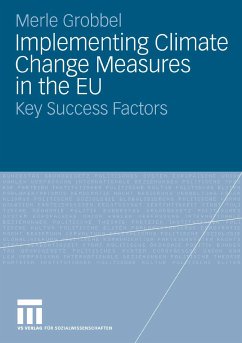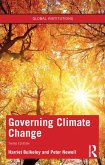Which factors influence the implementation of climate change measures in the EU? Are there already any indications prior to directive/law approval of (national) implementation difficulties that could later emerge? What are the prerequisites of successful implementation? How can we model implementation? Implementing Climate Change Measures in the EU provides answers to these questions and introduces an all new implementation model.
Dieser Download kann aus rechtlichen Gründen nur mit Rechnungsadresse in A, B, BG, CY, CZ, D, DK, EW, E, FIN, F, GR, HR, H, IRL, I, LT, L, LR, M, NL, PL, P, R, S, SLO, SK ausgeliefert werden.









